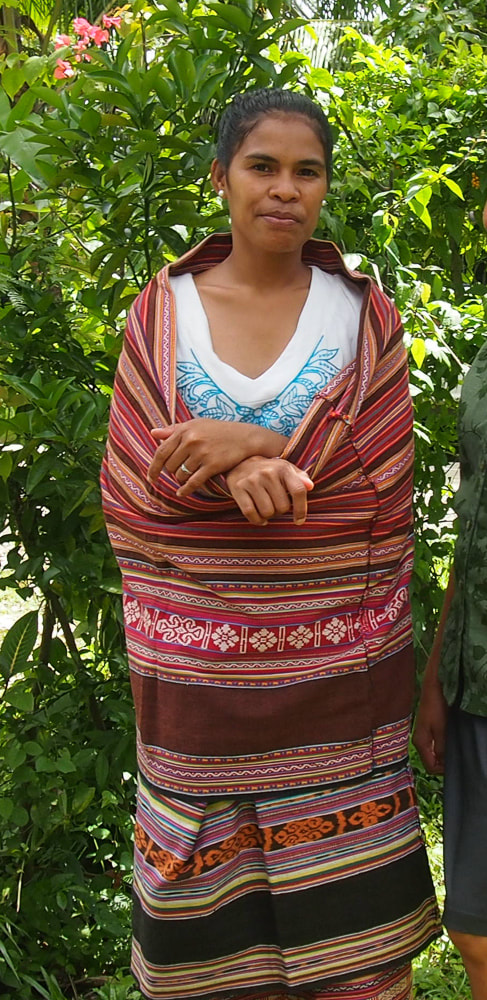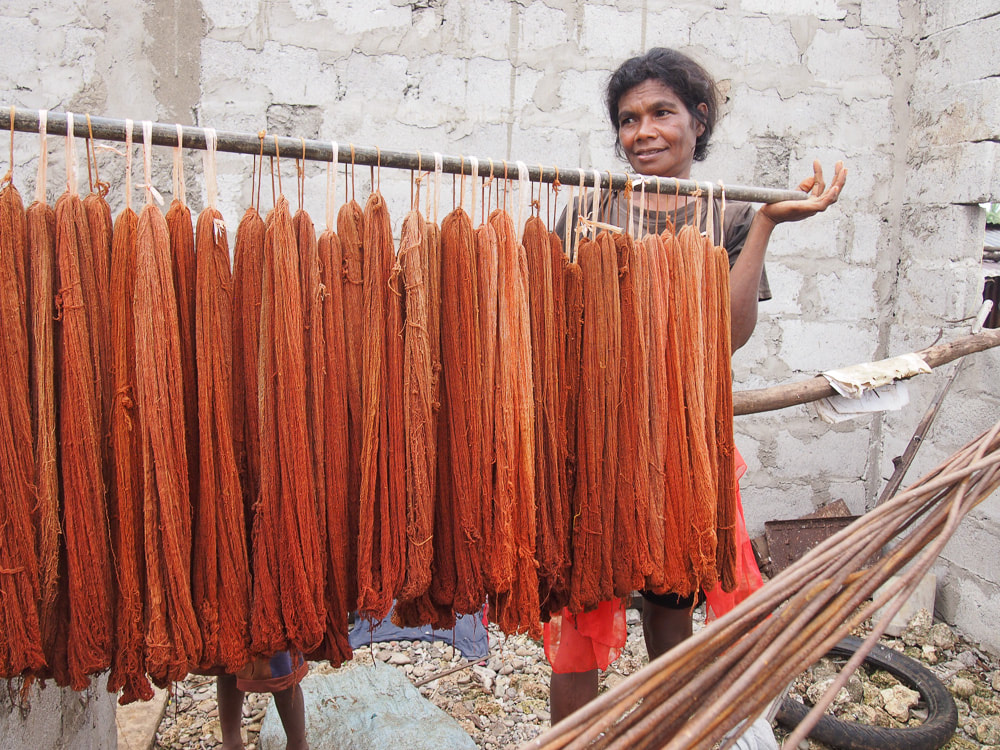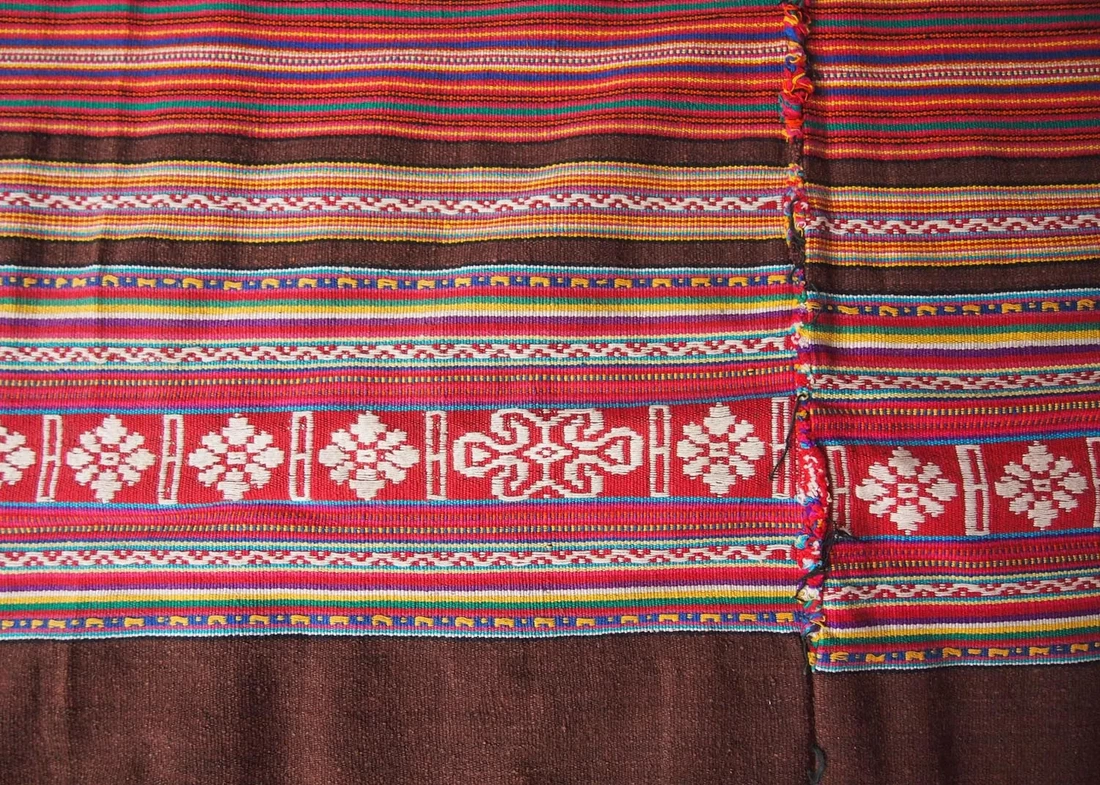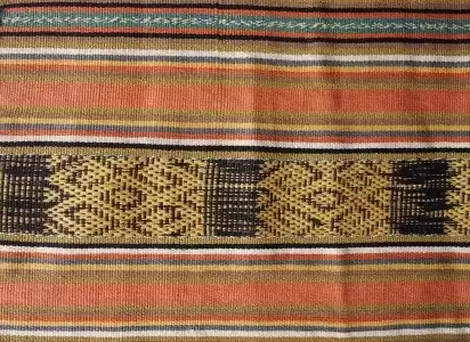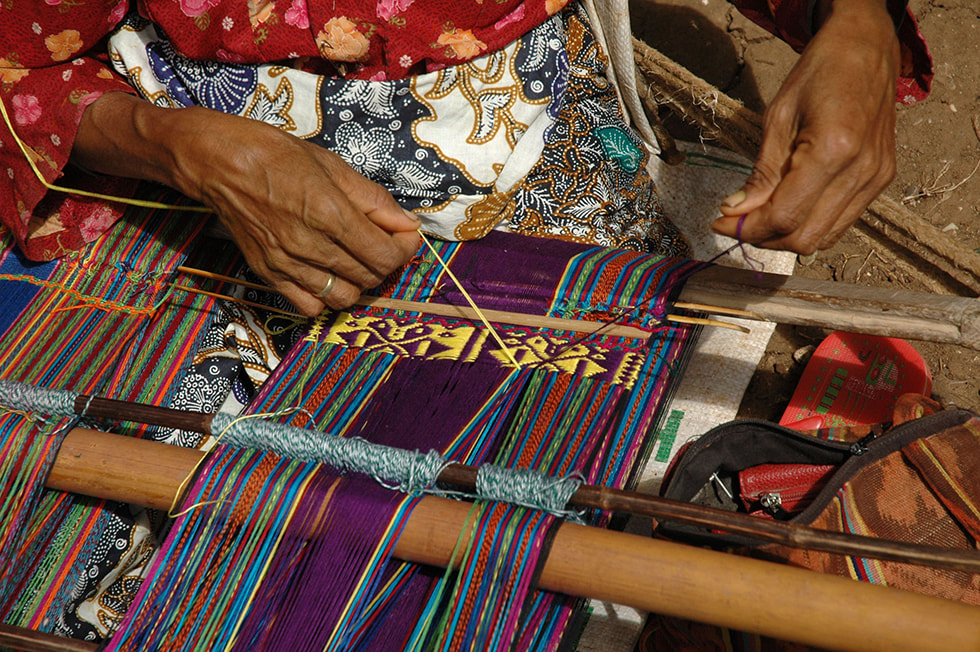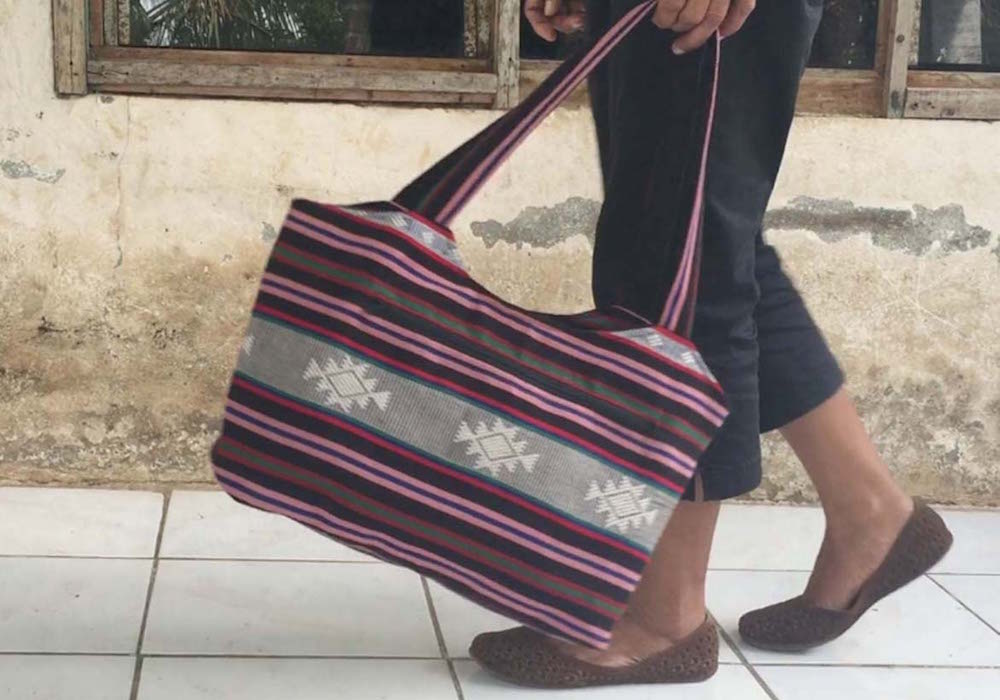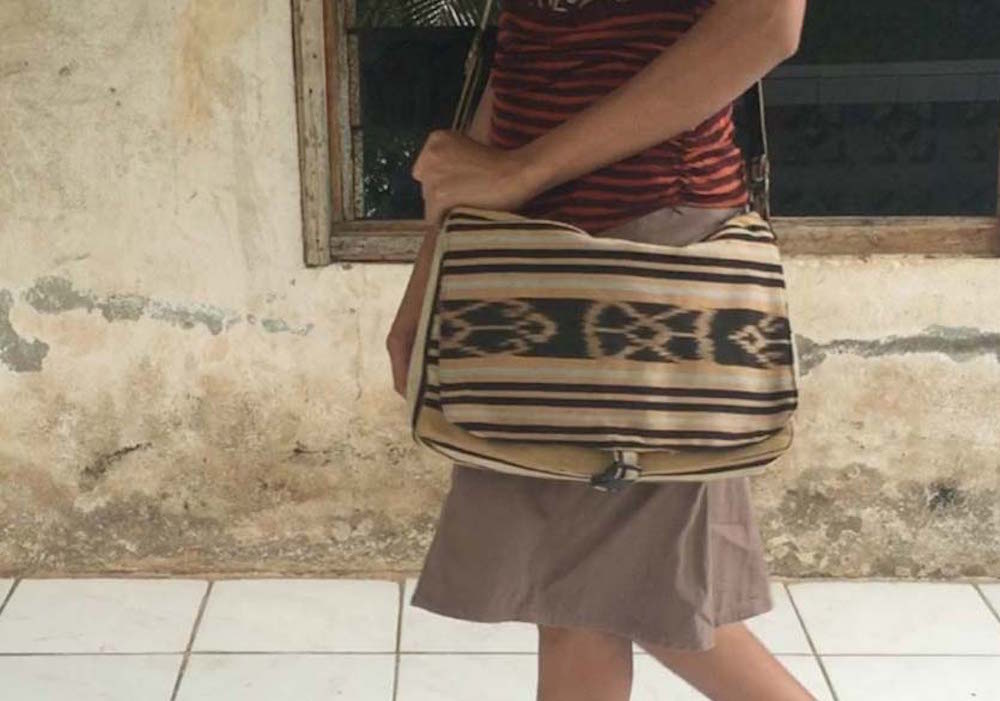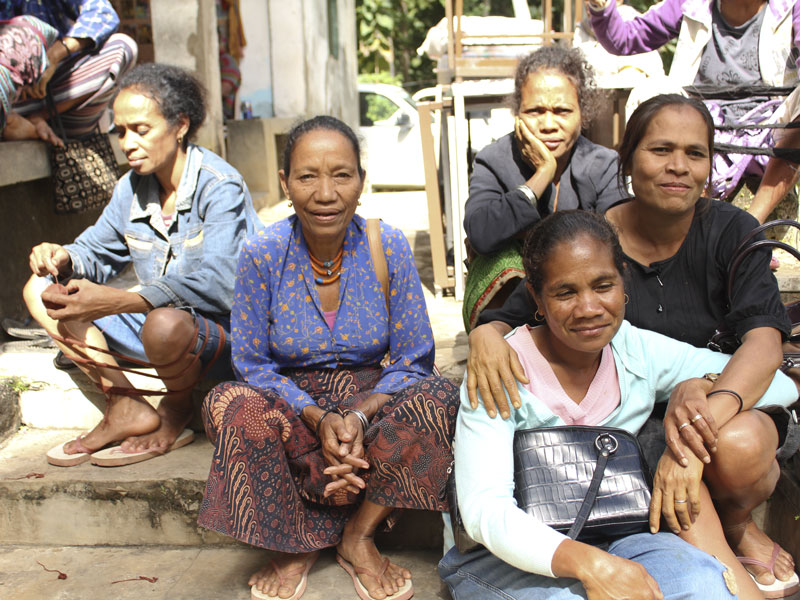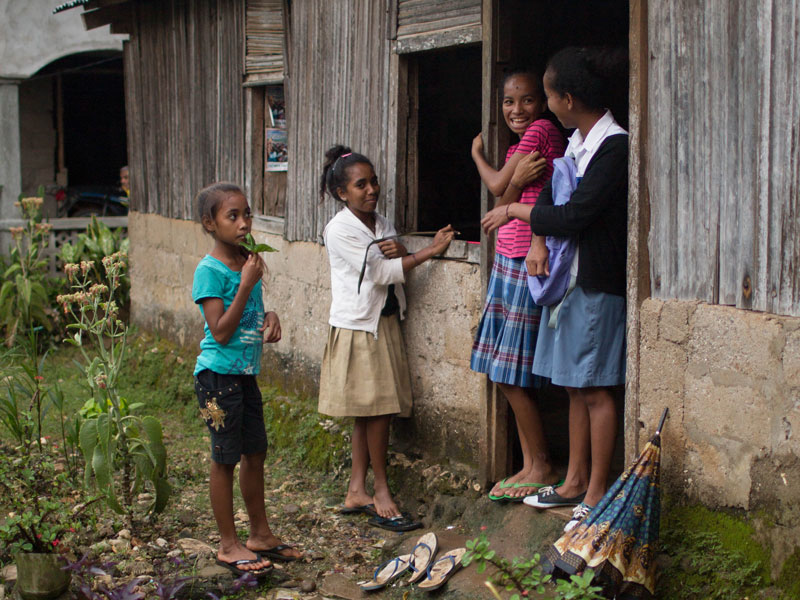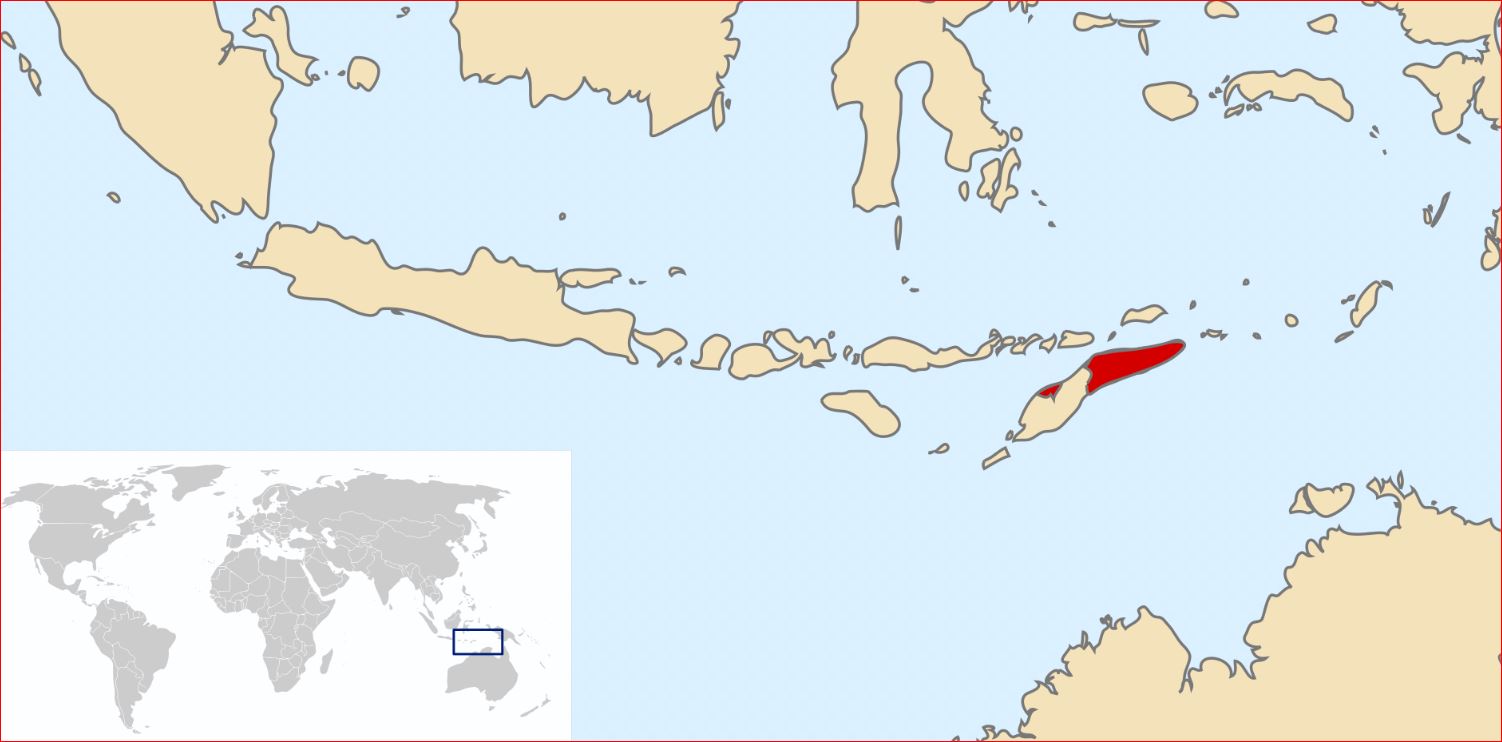Process and Weaving
Learning from the Women of East Timor
|
"In post-conflict Timor, weaving is also vital to healing past traumas and as a creative outlet. It can provide stable employment for women who face an uncertain future, including those widowed, orphaned or estranged from their families during wartime. Those who are able to earn a living through tais are venerated; living proof that a woman can assume a position of independence and leadership in lifting her family out of poverty."
- Emily Lush, The Kindcraft |
The idea of weaving plays a very important role in process theology. It might also be called "weaving" theology.
We believe that every moment of experience is an act of weaving materials from the past actual world into a new whole, such that, in Whitehead’s words, "the many become one." The new whole is itself "new.” Thus, as we say, "the many become one and are increased by one." The increase is the textile that comes from the weaving. It is, in our language, the "actual entity." Our lives are made of such entities. The past actual world is a panoply of textiles. And in the present we are making a new textile, namely our lives in the moment at hand. And we believe that even the Soul of the universe, God, is a weaver, perpetually weaving the events of the world into new and inclusive wholes: new “textiles” that form the content of the divine life. God is not different from the weaving, God is the weaving. We call it the "consequent nature of God." Here's the point. Heaven is not static. It is an ongoing process of weaving together what is given by the world, trying to create something beautiful. It is, as it were, the living textile of the universe, always in the making. And yet few of us in the world of process philosophy and theology can actually weave with our hands. We have lost or never had the art. And even as we champion the idea of ecological civilizations, and just and sustainable communities, we may forget how important actual weaving, with the hands, can be to the development of those civilizations. This is why we need examples and inspirations from the real world. The women of East Timor, for example. They become our models and mentors, our teachers and examples. It is from them, and people like them, that we might learn to weave our lives in new ways, for the common good of the world and of the kinds of local communities they are trying to help build. As we learn from them, a new and different kind of process theology emerges: hand-crafted and on the ground, with weavers as our guides. And one of the practices of this new kind of theology is financial. It is to help them by purchasing their goods in a spirit of fair trade. - Jay McDaniel |
